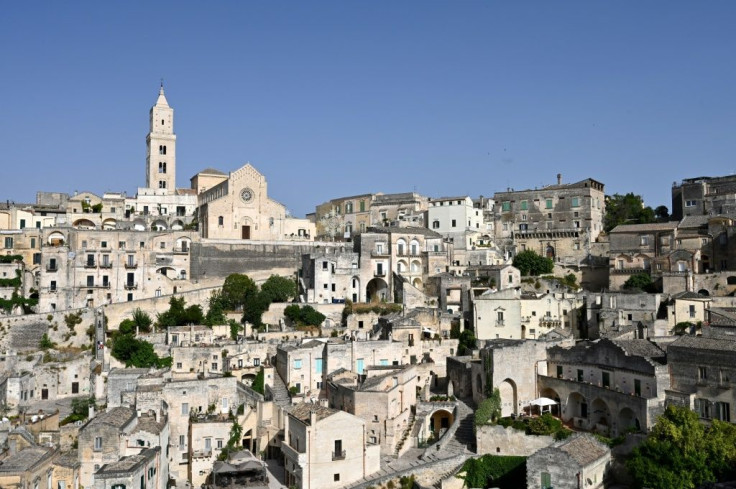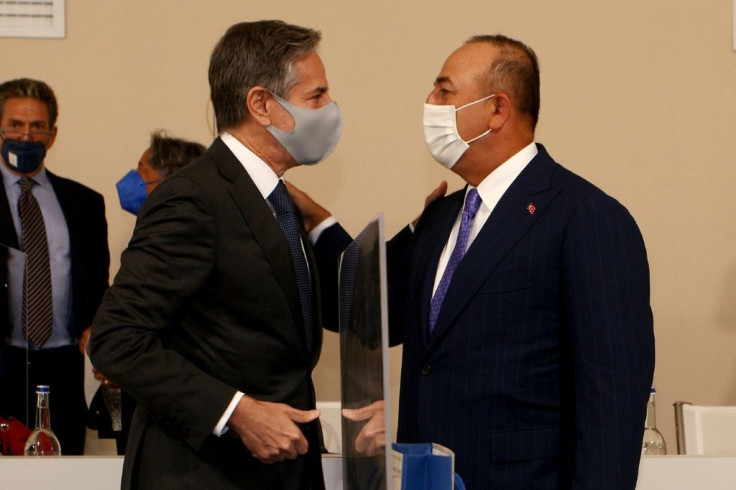US Urges Covid Cooperation At G20 As China Critical
The United States led calls at a G20 meeting Tuesday for greater global cooperation in light of the coronavirus crisis as China insisted that multilateralism should not just be a slogan.
Italy welcomed foreign ministers of the Group of 20 major economies to the southern city of Matera for their first in-person talks since the start of the pandemic that has claimed nearly four million lives worldwide.
In a sharp reversal in tone from the previous US administration, Secretary of State Antony Blinken called for empowering multilateral institutions to defeat Covid-19, tackle the widening global inequality and step up the battle to arrest climate change.
"On these challenges and many others, a strong multilateral system is essential," said Blinken, closing a week-long trip to Europe.

"That's why the United States is committed to supporting effective and accountable multilateral institutions," he said.
"We must deliver results -- for our countries, our people, and the world."
Blinken called for efforts to "strengthen global health security moving forward so we can detect, prevent and respond better to future health emergencies."
He pointed to the US promise of $2 billion for Covax, the UN-backed initiative that aims to vaccinate low-income countries, and President Joe Biden's pledge to manufacture and donate 500 million Pfizer doses in addition to 80 million doses from US stocks.
Biden has also loosened some export restrictions and patents, a reversal from his predecessor Donald Trump's "America First" philosophy that has upset the pharmaceutical industry.

Biden's vaccine initiative -- and Blinken's readiness to show up to meetings -- are designed in part to show strong US leadership in the face of a rising China, whose growing assertiveness has been identified by the new US administration as the top global challenge.
Appearing virtually at the Matera meeting, Chinese Foreign Minister Wang Yi did not name the United States but suggested ulterior motives in the rhetoric as he called on the G20 to show "true multilateralism".
"China calls on able countries to avoid export restrictions or excessive hoarding" of vaccines, Wang said.

"Multilateralism is not a high-sounding slogan, and it cannot become gift-wrapping for the implementation of unilateral action," he said.
Wang said that Beijing has exported 450 million doses. But despite quick delivery, the Chinese-made Sinovac vaccine has come under scrutiny.
Chile, which has relied heavily on Sinovac, is considering introducing a third dose to protect against new variants, while Italian Prime Minister Mario Draghi recently said Sinovac was "shown to be inadequate".
The Matera talks will prepare for a G20 leaders' meeting in October in Rome that is expected to see Biden's first summit with Chinese President Xi Jinping.
As Covid worries ease across the West, the vast majority of vaccine doses have gone into the arms of people in wealthy nations or China.
Foreign Minister Christophe Lutundula of the Democratic Republic of Congo, participating as part of an Italian push to involve African nations in G20 talks, warned that coronavirus was far from over on his continent and called for urgent measures.
In addition to immediate aid, he called for the G20 to back the capacity of developing countries to produce vaccines themselves and to help launch a continent-wide agency to encourage scientific cooperation.
The G20 must help "concretely and in detail so we move beyond speeches to urgent action on the ground," he said.
Such cooperation "will help African countries counter the shock of Covid and revive their economies for the greater good of the international community", he said.
Italian Foreign Minister Luigi Di Maio, the event host, announced a Matera declaration on food security.
"It's a concrete document, an invitation to act for the whole international community," he said, stressing that 850 million people worldwide suffered from famine.
"The world is not on track to achieve Zero Hunger by 2030 and end malnutrition in all its forms," a declaration adopted by the ministers said, urging all nations to act "urgently" to end the scourge of famine.
© Copyright AFP 2024. All rights reserved.





















